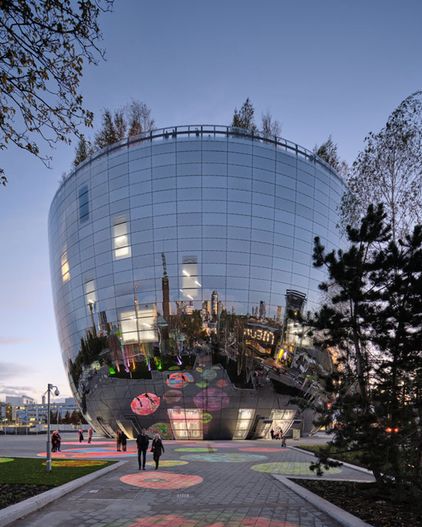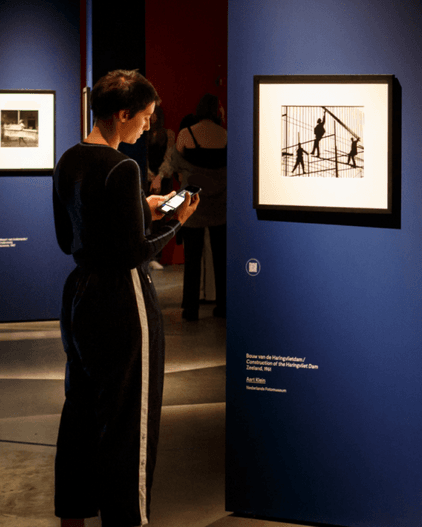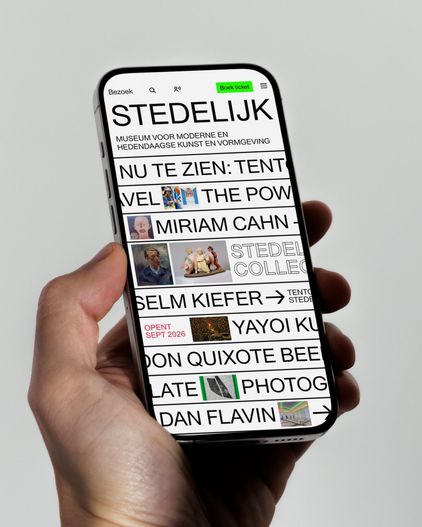The stories from World War II up close
Challenge
There are fewer and fewer eyewitnesses of World War II who can still share their stories. That is why Stichting WO2Net wants to make the scattered sources from World War II more digitally accessible and usable. The stories hidden in archives are also incredibly interesting for current generations. By digitising and sharing these, Netwerk Oorlogsbronnen wants to ensure that the lessons from World War II remain a moral compass for the future.
Result
Oorlogsbronnen.nl connects and provides context to more than 12.5 million sources by linking them to events, places, people and themes, and presenting them in a narrative way. The platform is almost entirely data-driven, using data to generate rich content pages with meaningful interconnections. This allows the vast amount of data to be processed, making the platform flexible and future-proof. The context provided for stories, events, and objects brings World War II close.
What we did
Concept, data driven storytelling, digital identity, UX design, development
Impact
Awards
- Dutch Interactive Award: Data
- Dutch Interactive Award: Content
- Dutch Interactive Award: Service
- The Lovie Awards: Cultural Institutions
- The Lovie Awards: Beste Use of Data Visualisation
- The Anthem Awards: Humanitarian Action & Services

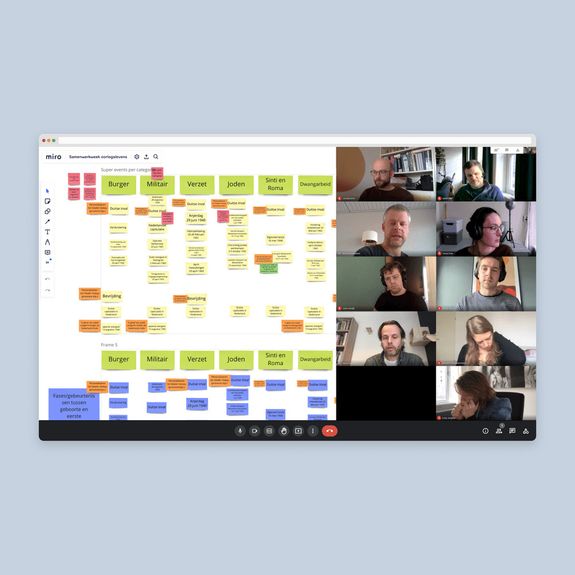
Co-creation
Several online co-creation workshops were used where strategy, development, design, data scientists from spinque and historians and IT specialists from Stichting WO2Net came together to work on developing the platform. By combining these different disciplines we were able to pivot the complex factual data to usable information and an optimal user experience.
The platform gives context to over 12.5 million resources shown in 300.000+ people, thousands of locations, theme’s and events.
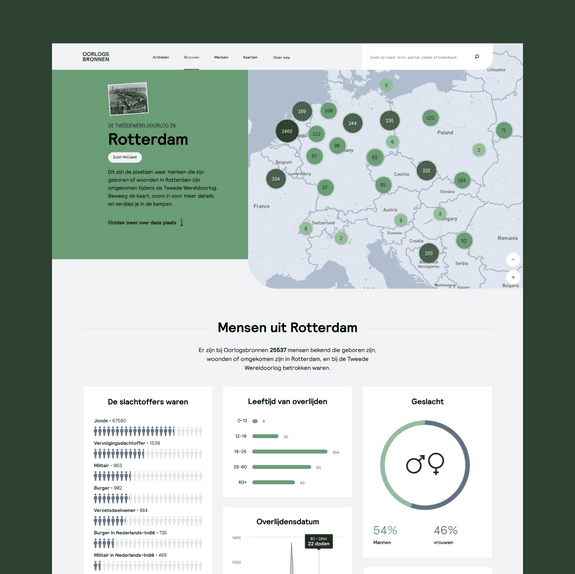
Data driven
The platform is almost entirely data driven. This enables us to process huge amounts of data and creates a flexible and futureproof platform. When a new organisation or dataset gets added to the netwerk their data gets formatted and cleaned up and is easily added to existing places, people, locations and events. Even generating new ones. We’re using flexible reusable components which enables us to process large and small amounts of data.
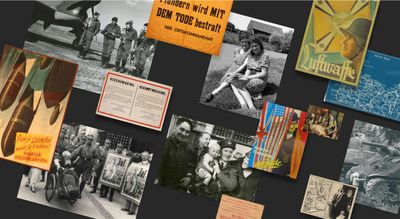
Search design
We’re able to create semantic connections between resources using Linked Open Data, search strategies and an expansive Knowledge Graph. This gives us, for example, the information we need to know who was doing what during a certain event and what role they played.
The lives of 300K+ persons
One of the ways we’re able to provide context to a person is by generating a data driven timeline of their lives. We do this based on a person’s name, other metadata, and events that happened in their lives and in the War.
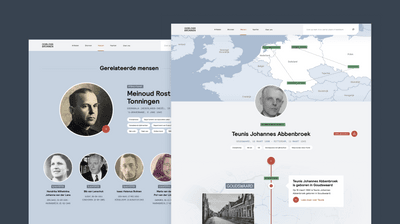
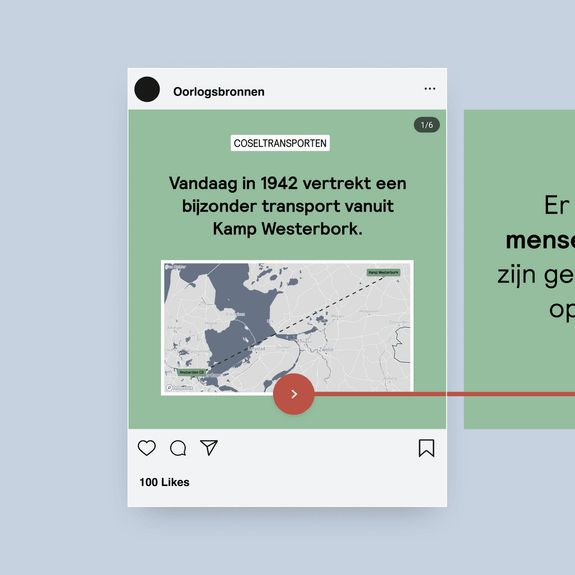
Social Media
Oorlogsbronnen’s Instagram feed consists of events that happened that day years ago or different people born or died on the day. Consistently maintaining the look and feel on the website on their social media.
National news
When the platform was released, the Dutch Broadcasting Foundation (NOS) created a segment on how the platform helps researchers and the general audience alike to discover more about the second world war. The main point of the segment was how the combined sources about WWII present new data and insights about past events and peoples involvement in them.
Credits: Spinque for search design, knowledge graph and development search engine. Overboard for tech implementation support.
Ready to change things?

